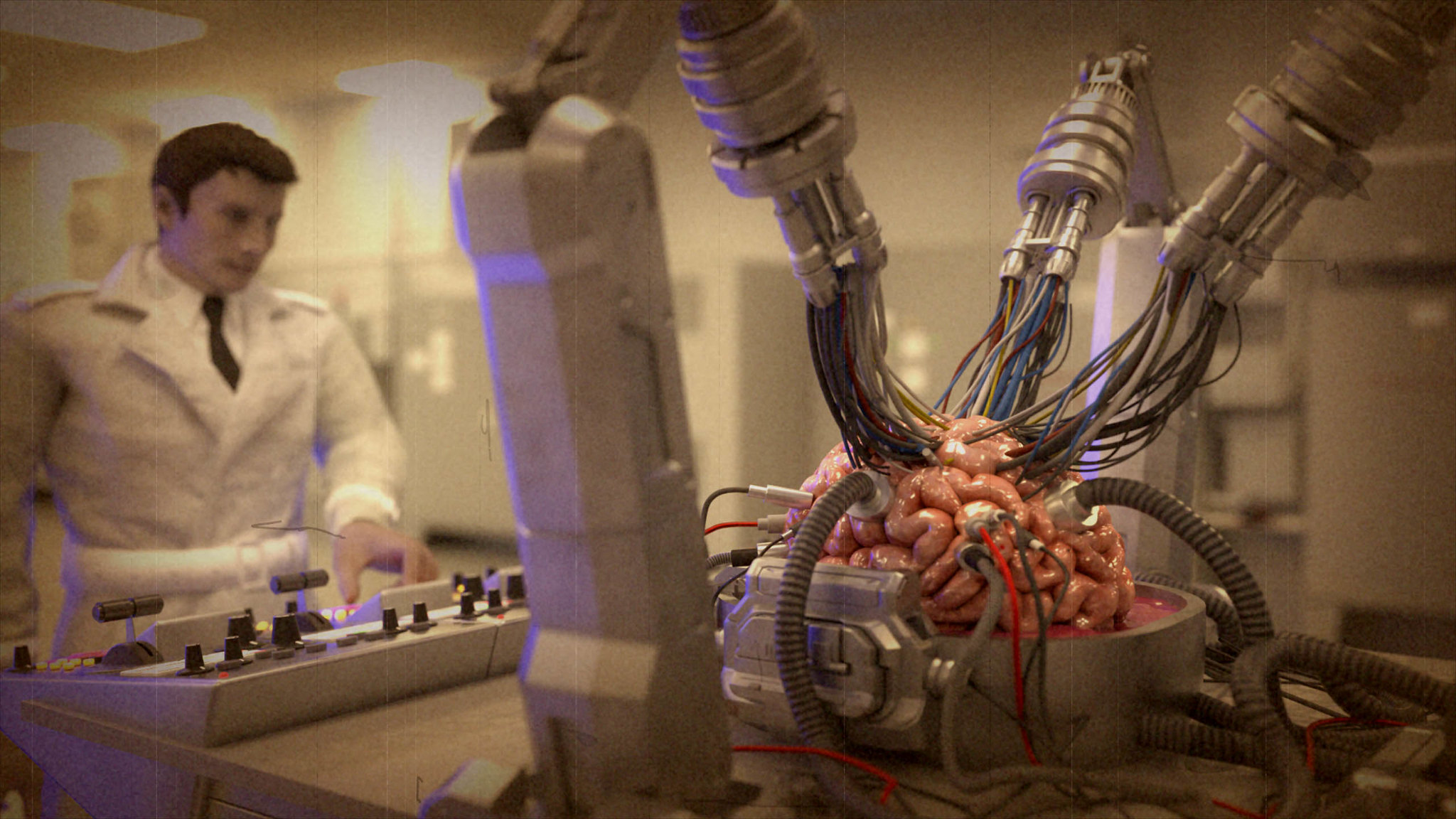Put on your tin foil hats, it’s time to talk about how we’re all in The Matrix. Rodney Ascher delves into the world of conspiracy theorists with his documentary A Glitch In The Matrix, which focuses on the belief that we are all in the Matrix.
Everything we see, feel, experience, all of our surroundings, perhaps even the people of the world, is artificial. At the center of this documentary is Ascher’s “witnesses” a gaggle of guys hiding behind jewel-texted avatars. Their “first-hand accounts” are essentially conspiracy theories backed by coincidences that don’t connect when looked at on a microscopic level. Nearly all of them come from a Judeo-Christian background and continuously connect their beliefs to Christ in some way, which makes their religious adherence to the simulation theory more like a new crutch than a revelation.
Clips are pulled from Elon Musk and Philip K. Dick, talking about the theory that we’re in a simulation as an essential philosophy of life. Although Musk is eye roll inducing and Dick’s talks seem firmly cemented in the fictional, no matter how much he wants to believe it is true, they are hardly the weakest part of the film. In fact, A Glitch In The Matrix actually has many high points. It explains the theory in tandem with the philosophical theory of Plato’s Cave, which adds a bit of credibility to the theory past just “first-hand accounts” and a movie from 1999.
The weakest part of the documentary is these four witnesses. One guy named Brother Læo Mystwood (I’ll let you come to conclusions on your own with that name) is an ordained minister and had an experience within a sensory deprivation tank that made his body feel like an illusion. Another named Alex Levine believes that there can’t be 7 billion people in the world. He recounts a cringe-inducing drunken night in Mexico where he managed to escape Federales after drunk-driving with some strangers. What he calls insane coincidence, I call a failure of the justice system.

There’s also Jesse Orion, a man who believes that when celebrities act out of sorts, they are being controlled by their players like avatars in a game. The devaluing of human life by these true believers is insane. Orion also spent years basically part-timing at Chili’s and playing video games on a couch, pondering why his life had no meaning or momentum.
The fourth witness, Paul Gude, had a shocking encounter with his uncle who thought that if we were all in the Matrix, he would just start killing people without consequences. Of course, this leads directly into the third arc of the documentary that examined convicted-killer Joshua Cooke, who murdered his parents after believing that he was in The Matrix.
Gude considers, near the end of the doc, “Is it possible that I saw everyone as these sort of robotic of humans walking around because I couldn’t figure them out? Because of a problem with my brain? And that’s the thing, I never wanna get locked into the idea that this is all fake, if, in fact, the reason I thought this is all fake was because it was an easier way for me to deal with the complexities of human existence.”

Well, you really nailed it on the head there, Paul. Because that feels like the major takeaway from A Glitch in the Matrix. Not that this is some crazy new philosophy on life, but rather a large bout of mental illness that leads people to believe the reality of the world they live in is fake. In a time when QAnon is a constant topic on the tip of our tongues, perhaps what Ascher is presenting is something worth taking a deeper look at. There is this desperate fear of insignificance combined with a genuine separation from rooted deeply in this theory. As Emily Pothast, one of the talking heads, says, “I think loneliness, isolation, and trauma play very heavily into the kind of realities that people construct for themself.”
Is A Glitch in the Matrix a good documentary? It’s hard to say. The strengths lie in the presentation, complete with animations that illustrate the witness’s accounts and their avatars. But the plot is jumbled. Jumping from Musk, to Dick, to the witnesses, to Cooke, there’s a sense of disorientation. It certainly presents a very fringe belief to a mainstream audience, but how well it does might depend on your tolerance of the witnesses who eat up a majority of the run time of the doc.
This film review was based on the premiere at Sundance Film Festival 2021 and is available to watch now, on-demand. Photo Courtesy of Sundance Institute